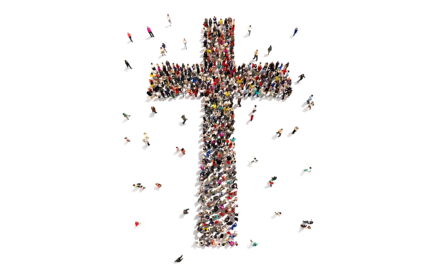 org. Every part of the Church, and many others outside of her – believers or non-believers – have received Pope Francis` clear and hope-filled words. They are also words that motivate us to assume the responsibility we all have to build a world in accordance to the Will of God, in the strength of the Spirit and through the way of Christ. Cardinals and bishops, priests, men and women religious, novices and seminarians, families, the youth and elderly, communities and institutes have received this challenge to go out “onto the street” to take – not a utopian hope – but concrete deeds in living evangelization projects to all men and women wherever they may be. And if they are on the “outskirts” then we have to go there, with all the risks and dangers it may include. He repeats to us constantly: I prefer an injured church, because she goes out to serve, to a Church that is sick because of her self-absorption. Testimony to this can be found in the section of Schoenstatt.org where on a weekly basis texts are selected which motivate us on our own pilgrimage toward the 2014 Jubilee. Undoubtedly, because we are the Church, these words are also directed to us. How happy must our Father not be with this missionary impetus which is given to us from the very heart of the Church! (Fr. José María García)
org. Every part of the Church, and many others outside of her – believers or non-believers – have received Pope Francis` clear and hope-filled words. They are also words that motivate us to assume the responsibility we all have to build a world in accordance to the Will of God, in the strength of the Spirit and through the way of Christ. Cardinals and bishops, priests, men and women religious, novices and seminarians, families, the youth and elderly, communities and institutes have received this challenge to go out “onto the street” to take – not a utopian hope – but concrete deeds in living evangelization projects to all men and women wherever they may be. And if they are on the “outskirts” then we have to go there, with all the risks and dangers it may include. He repeats to us constantly: I prefer an injured church, because she goes out to serve, to a Church that is sick because of her self-absorption. Testimony to this can be found in the section of Schoenstatt.org where on a weekly basis texts are selected which motivate us on our own pilgrimage toward the 2014 Jubilee. Undoubtedly, because we are the Church, these words are also directed to us. How happy must our Father not be with this missionary impetus which is given to us from the very heart of the Church! (Fr. José María García)
![]()
WEEK 14/2014
“Lent is a time to change direction, to respond to the reality of evil and poverty.”
Tweet from 31.3.2014

Very often a good deed, a work of charity generates gossip, discussions because some people do not want to see the truth. John the Evangelist wants to draw attention to this, which also occurs today when a good deed is done. The blind man who was cured was first questioned by the surprised crowds – they witnessed a miracle but still they questioned him – and then by the doctors of the law; and they then even questioned his parents. At the end, the blind man who was cured comes to faith and this is the greatest grace Jesus gave him: not only can he see, but he can know Him, see Him as the “light of the world.” (Jn 9.5) While the blind man slowly draws closer to the light, the doctors of the law, by contrast, sink deeper into their interior blindness. Shut off by their presumptuousness, they believe that they already have the light and this is why they are not open to the truth 1Jesus brings. They do everything in their power to deny the evidence. They question the identity of the healed man, and then they deny God’s action in the healing, using the excuse that God does not work on the Sabbath. They even doubt that this man had been born blind. By shutting themselves off from the light they become aggressive, resulting in the healed man’s expulsion from the temple. He was expelled from the temple.
Angelus, 30.3.2014
In contrast, the blind man goes down a path of several stages, beginning with him knowing the name of Jesus. He does not know any one but him, in fact he says: “The man they call Jesus made some mud and put it on my eyes” (v.11). As a consequence of the insistent questions by the doctors of the law, he first describes him as a prophet (v.17) and then as a man who is close to God (v.31). After he was expelled from the temple, excluded from society, Jesus meets him again and “opens his eyes” a second time, revealing his identity: “I am the Messiah,” he said. At this point, the man who had been blind, exclaimed: “Lord, I believe!” (v.38) and worshpped him. This gospel story describes the tragedy of the inner blindness that so many people have: us as well, not so? Because we sometimes have moments of interior blindness.
Angelus, 30.3.2014
It is very difficult for a corrupt person to go back. The sinner, yes, because the Lord is merciful and waits for all of us. But the corrupt person is obsessed with his things and they were too [the Pharisees]. This is why they justified themselves, because Jesus, in his simplicity but with the power of God, bothered them. Little by little, they convinced themselves that they should kill Jesus and one of them said: “It is better for one man to die for the people.” But they misunderstood the way. They resisted the salvation of God’s love and put aside their faith and instead of a theology of faith, they adopted a theology of duty: “You have to do this, and this, and this”… And Jesus pointed them out with this very ugly adjective: “Hypocrites! You put an oppressive burden on people’s backs. And you? You don’t even lift a finger! Hypocrites!” They rejected the Lord’s love and this rejection took them down a path that was not the dialectic of freedom that Jesus offered, but the logic of need, where there is no place for the Lord…it became a kind of behaviour. Educated men but with poor habits. Jesus calls them “whitewashed tombs.” This is the Lord’s pain, God’s sadness, God’s lament. During Lent, it is good for us all to think about Jesus’ invitation of love, in this dialectic of freedom that brings love and ask ourselves: Am I on this path? Or do I have to justify myself and to go from one path to the next? A circular path, because it does not lead to any promise. Let us pray that the Lord will grant us the grace to always follow the path of salvation, to open ourselves to the salvation that comes only from God, from faith and not what is preached by the “doctors of the law” who lost the faith and govern the people with a pastoral theology of duty.
To the Italian members of parliament and ministers, 27.3.2014
Those who are ordained are placed at the head of the community. They are “at the head”, yes, but for Jesus this means placing ones authority at the service [of the community], as Jesus himself showed and taught his disciples with these words: “You know that the rulers of the Gentiles lord it over them, and their great men exercise authority over them. It shall not be so among you; but whoever would be great among you must be your servant, and whoever would be first among you must be your slave; even as the Son of man came not to be served but to serve, and to give his life as a ransom for many” (Mt 20:25-28/Mk 10:42-45). A bishop who is not at the service of the community fails to perform his duty; a priest who is not at the service of his community fails to perform his duty, he errs…The bishop who does not pray, the bishop who does not listen to the Word of God, who does not celebrate every day, who does not regularly confess — and the same is true for the priest who does not do these things — in the long run lose their union with Jesus and become so mediocre that they do not benefit the Church. That is why we must help bishops and priests to pray, to listen to the Word of God which is one’s daily nourishment, to celebrate the Eucharist each day and to confess regularly. This is so important precisely because it concerns the sanctification of bishops and priests.
General Audience, 26.3
If [the Sacrament of] Reconciliation transmits the new life of the Resurrected Lord and renews the baptismal grace, then your tasks is to generously give it to the faithful. A priest who does not dedicate himself to this part of his ministry…is like a pastor who does not care for the sheep he has lost…Mercy is at the heart of the Gospel. This is the Good News that God loves us, that he always loves the sinner and with this love draws the sinner to himself and invites him to conversion. Let us not forget that often it is difficult to go to confession, be it for practical reasons or the natural difficulty of confessing one’s sins to another man. This is why it is necessary to work on ourselves, our humanity so that we never present an obstacle but that we can always advance this drawing closer to mercy and pardon! Confession is not a court that condemns, but an experience of pardon and mercy!…We know that the Lord wanted to give this great gift to his Church, offering all those who have been baptised the assuredness of the Father’s forgiveness. This is why it is very important that in every diocese and parish community the celebration of this sacrament of forgiveness and salvation be given a great deal of attention. It is important for the faithful in all parishes to know when the priests are available: when there is faithfulness, the fruits will come.
To participants in the course sponsored by the Apostolic Penitentiary, 28.3.2014
Sometimes our lives are like that of the blind man who opened himself up to the light, who opened himself to God and grace. Sometimes, sadly, it is a little bit like that of the doctors of the law: from the height of our pride we judge others, and even God! Today we are invited to open ourselves to the light of Christ so that it can bear fruit in our lives, to eliminate behaviours that are not Christian: we are all Christians, and I mean everybody, all of us, yes? Sometimes our behaviour is not very Christian, behaviour that is sinful, not so? And we should repent and eradicate unchristian behaviours to walk firmly on the path of sanctity which begins at Baptism, and in our Baptism, we have been illumined so that, as St. Paul reminds us, we can behave as “children of the light” (Eph. 5.8), with humility, patience, mercy. These doctors of the law have neither humility, nor patience nor mercy. I suggest that when you return home today, to take John’s Gospel and read that passage in chapter 9: and this will do you good, because then you will see the path of blindness in the light and that other bad path towards an even deeper blindness. And we ask ourselves: how are our hearts? How is my heart? How is your heart? How is our heart? Do I have an open heart or is it closed to others? We are always in some way closed, born out of sin, born from our mistakes: do not be afraid. Do not be afraid! Let us open ourselves to the light of the Lord: he waits for us always. He waits for us always. To make us see better. To give us more light, to forgive us. Do not forget this: He always waits for us. Let us entrust our Lenten journey to the Virgin Mary, so that we also, like the blind man who was healed, can “come to the light” with Christ’s grace, go further in the light and be born to new life.
Angelus, 30.3.2014
The love of Jesus Christ lasts forever, it will never end because it is the very life of God. This love conquers sin and gives the strength to get up and start again, because with forgiveness the heart is renewed and rejuvenated. We all know this: Our Father never tires of loving and his eyes do not grow heavy at looking at the way home to see if his son who left and was lost will return. We can speak about the hope of God: our Father waits for us always. Not only does he leave the door open for us: he waits for us. He is involved in this, in waiting for his sons. And this Father does not tire of loving even his other son who remains in the house with him, even though he does not participate in his mercy and his compassion. God is not only the source of love, but in Jesus Christ, we are called to imitate his own way of loving. “As I have loved you, so should you also love one another” (Jn. 13.34) In the extent that Christians live this love, they become credible disciples of Christ in the world. Love cannot stand to be locked up in itself. By its very nature love is open, it spreads and is fruitful. It always spreads new love.
“24 Hours for the Lord,” 28.3.2014
To everyone you meet, you will be able to communicate the joy of receiving the Father’s forgiveness and regaining full friendship with Him. Tell them that our Father awaits us, our Father is expecting us, our Father forgives us. And more than this: He will celebrate. If you come with your whole life, with many sins He will not reproach you but instead he celebrates. This is our Father, and this is what you have to tell everyone, to so many people, to as many people as you can today. Whoever experiences God’s mercy is driven to be the artificer of mercy among the poor and the least. In these “littlest brothers and sisters,” Jesus waits for us. Let us go to meet them and we will celebrate Easter in the joy of God!
“24 hours for the Lord,” 28.3.2014
That is our Father’s heart, God is like this: he does not tire, he doesn’t tire! He has done this for centuries, with so much apostasy, so much apostasy among the people. And he always returns, because our God is a God who waits. From that afternoon in the earthly Paradise, Adam left Paradise with a sentence and also with a promise. And He is faithful, the Lord is faithful to his promise, because he cannot reject himself. He is faithful. And he has waited for all of us, throughout history. He is the God who waits for us, always. This is our Father, the God who waits for us. Always. “But, Father, I have so many sins, I don’t know if He will be pleased.’ Try! If you want to experience the tenderness of this Father, go to Him and try, then tell me. The God who waits for us. God who waits and also the God who forgives. He is the God of mercy: he does not tire of forgiving. We are the ones who tire of asking for forgiveness, but He never tires. Seventy times seven: always ahead of us with forgiveness. And from the view point of a company, this is a negative balance. He always loses: loses the balance of things, but he wins in love. And this is because He is the first to follow the commandment of love. He loves, He knows no other way. The miracles Jesus performed for the many people who were sick were also a sign of the great miracle that the Lord performs each day in us, when we have the courage to rise and go to Him. And when this Lord passes by, there is a celebration. Not like at the banquet of that rich man, who had poor Lazarus at his doorstep. God holds another banquet, like the father of the prodigal son. Because you will flower like a lily, that is the promise. I will set a feast for you. Your shoots will spread out, your splendour will be like that of the olive tree and your fragrance like that of the tree of Lebanon. The life of each person, each man, each woman who has the courage to draw near to the Lord, will find the joy of God’s feast. And so, let this word help us to think about our Father, the Father who waits for us always, who forgives us always and prepares a feast when we return.
Santa Marta, 28.3.2014
See all texts in “Francis for the Pilgrims 2014”
Message for World Youth Day 2014
![]()
The aim of the pilgrimage
is the renewal of the covenant of love
as a missionary and unifying creative force,
i.e. internally the renewal of the Schoenstatt Family
and externally the shaping of covenant culture.













